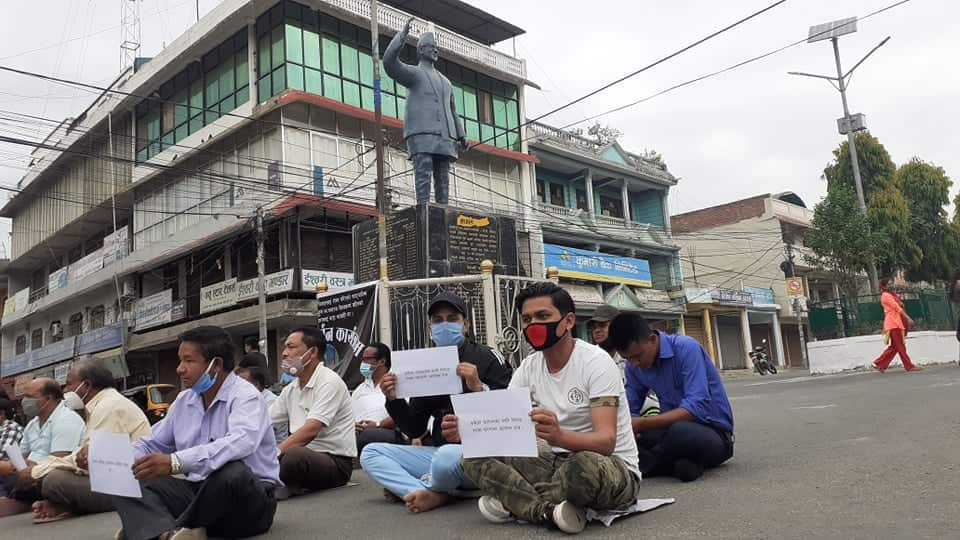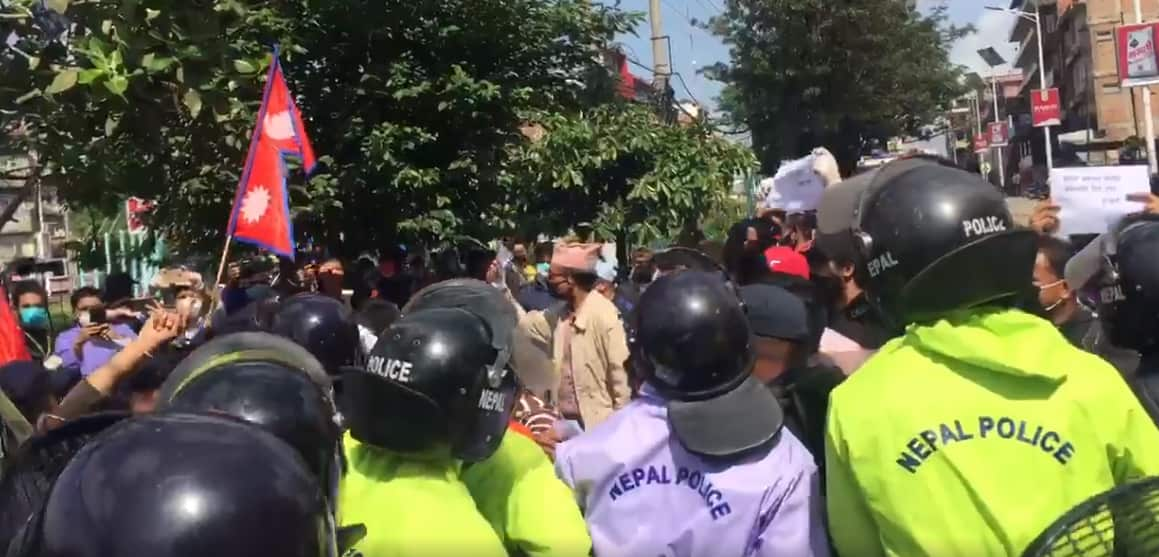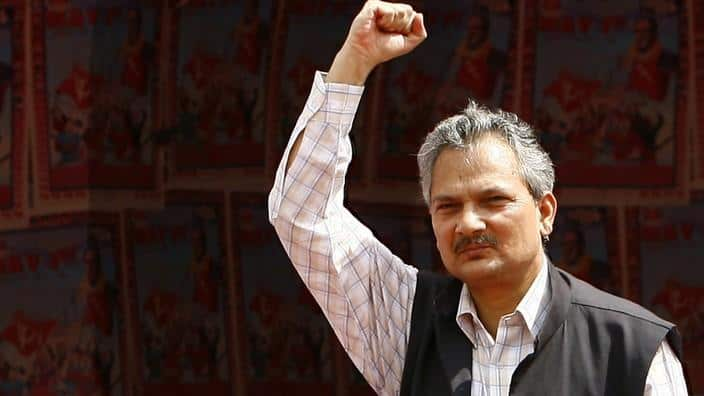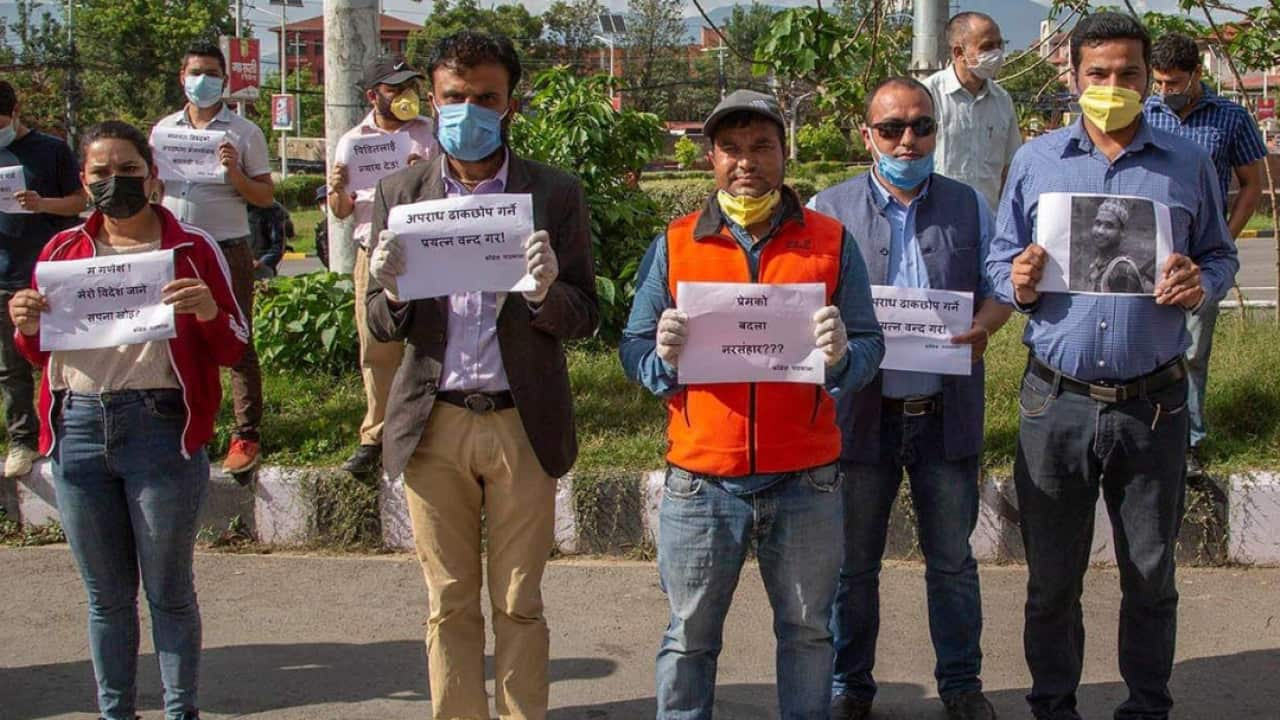It's an incident that has shocked the nation and exposed ongoing and deep-seated discriminatory attitudes based on people’s caste - a young Dalit man in Nepal was mobbed, together with his friends, and killed for attempting to marry a woman from a "higher caste".
On 23rd May, 21-year-old Nawaraj BK and 18 of his friends went to his girlfriend’s village in Soti, in Rukum West district, 280 kilometres west of the capital, Kathmandu, hoping to escort the girl, from a "higher caste" back to his home, allegedly at her request.
The girl belonged to a so-called “dominant” caste group.
“There was a clash between the two sides and the girl’s family and local villagers chased the boys towards Bheri river,” Nepal’s Federal Minister for Home Affairs, Ram Bahadur Thapa, told parliament.
Less than four hours later the body of Nawaraj BK - reportedly a promising athlete - was found in the river, along with two of his friends.
“Twelve people from the girl's side have been arrested for preliminary investigation," Mr Thapa said.

According to local police officials, Nabaraj BK and 17-year-old Sushma Malla had been in a romantic relationship for over a year and had attempted to marry last year. However, being underage, they were reportedly persuaded by police to wait.
Police say the girl’s family was against the wedding because they belonged to an “upper caste”, while BK belonged to the Dalit community.
Despite being illegal, members of the Dalit community are often the subject of discrimination and are labelled as “untouchable” in some parts of South Asia.

The United Nations says Dalits in Nepal and other countries "experience discrimination at every level of their daily lives, limiting their employment and educational opportunities, the places where they can collect water or worship, and their choice of who to marry."
Friends who survived the incident say that Sushma's mother had rounded up villagers, intending to beat the youths up. Six of the dead, including Nabaraj BK were beaten and thrown into the river.
This incident comes on the heels of several other cases of caste discrimination, including the alleged rape and murder of a 12-year-old Dalit girl in a southwestern district of Rupandehi last week.
Nepal’s Human Rights Commission said the girl was handed over to her rapist in the presence of a local-level representative. However, the girl was not allowed into the house because of an ‘inter-caste’ relationship, the commission says.
Fears of political influence
Meanwhile, there are fears the accused might survive prosecution if they secure political backing.
Opposition MPs interrupted an address by MP Janardan Sharma and Home Affairs Minister Ram Bahadur Thapa in parliament, accusing the ruling Communist Party of “trying to conceal the incident and protecting the perpetrators.”
Nabaraj BK's family has registered complaints against 20 people. Amidst calls for justice, the government has set up a five-member team to investigate the incident.
It is distressing that caste-based prejudices remain deeply entrenched in our world in the 21st century, and I am filled with sadness for these two young people who held high hopes of building a life together despite the obstacles presented by their accident of birth - Michelle Bachelet
Several other politicians called the incident a "heinous crime" hampering the plight of Nepal's Dalits, as well as a rejection of all of Nepal's earlier social movements.

Local and international condemnation
There are an estimated 3.6 million Dalits in Nepal, forming about 13 per cent of the population. Nepali law forbids discrimination on the basis of caste, but discriminatory practices continue, and people who marry outside of their caste are often cast out by their community.
Activists and students have held protests in the capital city, despite coronavirus lockdown, with Nepal’s former Prime Minister Baburam Bhattarai saying he would change his last name to Bishwakarma - a traditionally Dalit surname - in solidarity to end discrimination against Dalit people.

Concern in Australia over caste-based discrimination
Dr Mom Bishwakarma is the President of a newly formed organization called Dignity Forum Australia, working to reduce caste-based discrimination in Nepal and Australia.
He says in the context of continued caste-based discrimination and violence in Nepal, the news about the latest killings didn’t surprise him.
“However, it is unacceptable for such incidents to occur in Nepal, especially in the changed political context,” he said, implying the country becoming a republic and the country’s constitution declaring any form of discrimination as against the law.
Sydney-based Dr Bishwakarma says the prevalence of social hierarchy present in Nepali society is ensuring the continuation of such practices. “This is very sad,” he says and is calling on the UN to investigate the latest killings.
“If Nepal's government investigates then we’re concerned that political or other influence could suppress such incidents,” he says.
A recent survey by Dignity Forum Australia found that in the last three months of the coronavirus crisis, many members of Nepal’s Dalit community said they had experienced caste-based discrimination during COVID-19 relief efforts.
He also highlights at least 32 cases of discrimination, violence, rape and abuse against Dalit people, reported in the media.
The UN High Commissioner for Human Rights Michelle Bachelet has called for an independent investigation over the killings of the five Dalit youths and the death of the 12-year-old rape victim.
“Despite constitutional guarantees, impunity for caste-based discrimination and violence remains high in Nepal,” said the right Commissioner.
“Nepal has taken big strides to address this scourge, but so much more can and must be done to eradicate this blight on society.”
